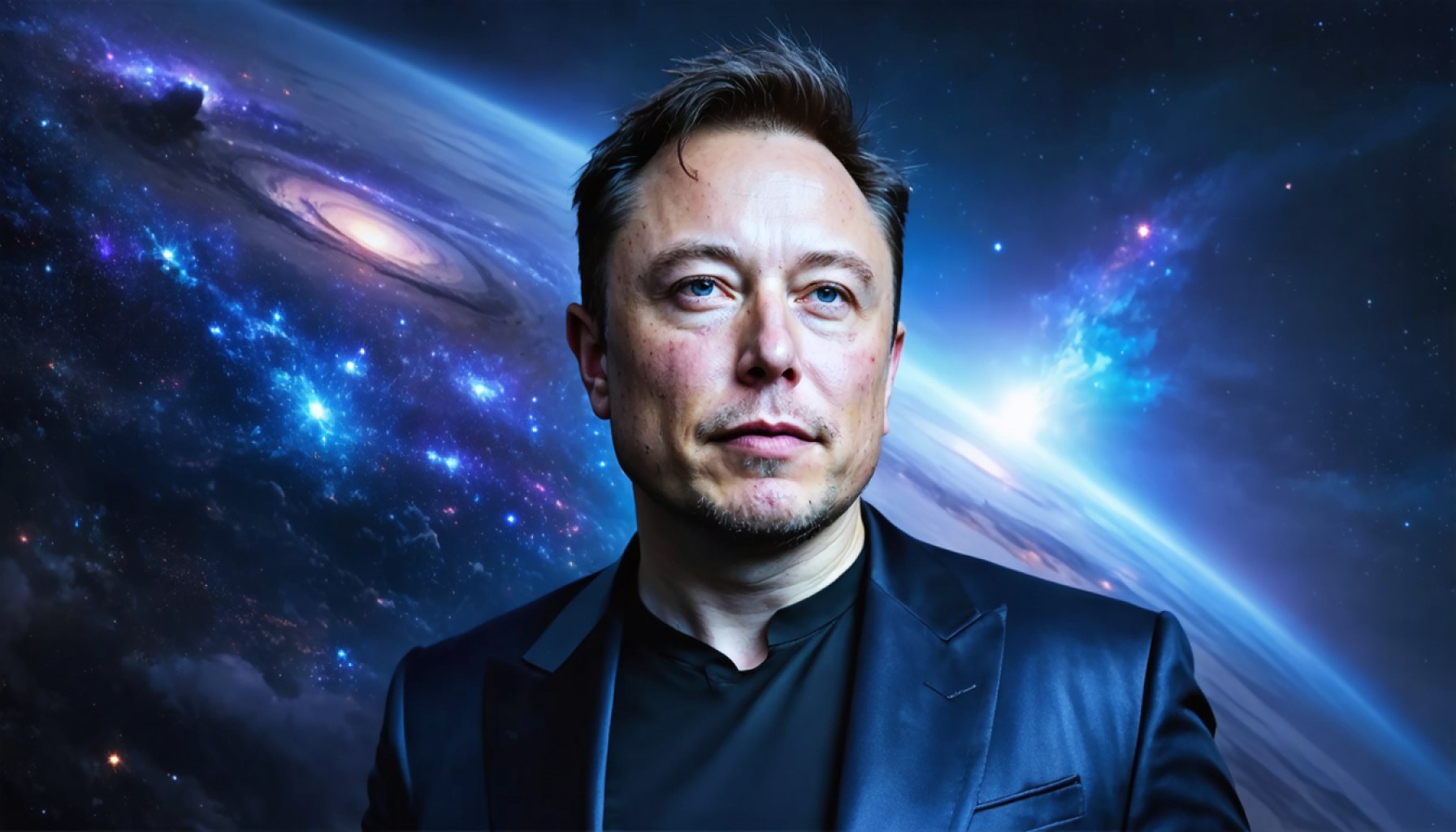- Elon Musk alleges astronaut return delay due to political interference, targeting the Biden administration.
- Claims of astronauts Sunita Williams and Butch Wilmore being stranded sparked controversy and space community debate.
- Musk’s critique was challenged by Danish astronaut Andreas Mogensen, escalating tensions with SpaceX’s CEO.
- Former astronaut Scott Kelly defended Mogensen, prompting Musk to issue further insults.
- This incident highlights the intertwining of science and geopolitics in space exploration.
- Emphasizes the need for collaboration and respect in addressing broader concerns about space diplomacy and teamwork.
Elon Musk, never one to shy from controversy, has captivated the world once again with provocative allegations about a delayed astronaut return mission. The billionaire’s assertions about the plight of astronauts Sunita Williams and Butch Wilmore sparked heated reactions across the space community, igniting a verbal standoff as fiery as a rocket launch.
Astronauts Trapped in Space? Musk claimed political interference hindered the return of these spacefarers, initially slated for a short mission. Pointing fingers at the Biden administration, he alleged that the return was postponed deliberately. Musk insisted he sought help earlier but was refused, leaving the astronauts marooned until support came from former President Donald Trump.
Backlash Among Stars Discontent brewed when Danish astronaut Andreas Mogensen challenged Musk’s narrative, prompting a flood of strong words from the SpaceX CEO, including an unflattering diatribe against Mogensen’s intelligence. Adding fuel to the fire, former astronaut Scott Kelly defended Mogensen, reminiscing about his integrity and professionalism. Kelly’s indignation spurred Musk to unleash another barrage of insults, targeting both Kelly and his senator brother, Mark Kelly.
The Takeaway Beyond the quarreling, this episode underscores the complexities of space exploration where science and geopolitics intertwine. Critical missions transcending Earth shouldn’t become mere pawns in power plays. This squabble speaks to broader concerns about space diplomacy as Musk’s confrontations with veteran astronauts remind us that cosmic success requires collaboration, respect, and unity.
In a universe that demands cooperation, space remains a domain where teamwork, not insults, should chart the course—an expectation as vast as the galaxy itself.
Unveiling the Standoff: What Elon Musk’s Allegations Mean for Space Diplomacy
How-To Steps & Life Hacks for Collaborative Space Missions
Fostering Better Communication in Space Exploration:
1. Engage in Transparent Dialogue: Establish clear protocols for communication between agencies like SpaceX, NASA, and international partners to ensure transparency and mutual understanding.
2. Develop Conflict Resolution Mechanisms: Utilize established diplomatic channels and third-party mediation to settle disputes before they affect missions.
3. Create Unified Policy Frameworks: Encourage governments to work with private companies to form policies that outline jurisdictional boundaries and responsibilities in space.
Real-World Use Cases of Collaborative Missions
International Space Station (ISS): The ISS is a prominent example of international collaboration in space. Built by the efforts of multiple countries, it reflects how joint missions lead to significant scientific advancements.
Artemis Program: By involving NASA, the European Space Agency, and private partners like SpaceX, Artemis demonstrates the power of collaboration in achieving the goal of returning humans to the Moon.
Market Forecasts & Industry Trends
The commercial space industry is expected to grow significantly, with predictions suggesting it could surpass $1 trillion by 2040 (source: Morgan Stanley). The potential for international partnerships will drive this expansion, especially as geopolitical challenges escalate the need for joint technological development.
Reviews & Comparisons
SpaceX vs. Traditional Aerospace Companies:
– SpaceX: Known for rapid innovation, reusable rocket technology, and a more flexible approach to regulation.
– Boeing/NASA: Established with consistent reliability, but perceived as having slower innovation cycles due to bureaucratic layers.
Controversies & Limitations
1. Political Interference: As highlighted by Musk’s claims, political oversight in space missions can lead to contentious situations, raising questions about transparency and governance.
2. Corporate vs. Government Endeavors: The tension between private entrepreneurship and national space policies can hinder cooperation, as each stakeholder has different priorities.
Pros & Cons Overview
Pros:
– Encourages innovation through competition and partnerships.
– Expands the scope of possible missions with shared resources and expertise.
Cons:
– Risk of political conflicts affecting mission continuity.
– Proprietary technology disputes may arise between international corporations.
Actionable Recommendations
1. Adopt a Cooperative Framework: Encourage institutions to create an international cooperative framework to guide space policy, emphasizing transparency and shared responsibilities.
2. Invest in Diplomacy: Allocate resources to space diplomacy training programs to prepare professionals for geopolitical challenges in international missions.
3. Encourage Cross-Sector Collaborations: Strengthen ties between governments and private space entities to streamline operations and reduce bureaucratic bottlenecks.
Conclusion
Space exploration thrives on collaboration. Learning from the recent controversies, stakeholders can focus on building frameworks that prioritize shared goals over individual gains, ensuring a smoother journey as humanity reaches for the stars.
For more insights on space industry trends and partnerships, visit NASA, SpaceX, and Boeing.
